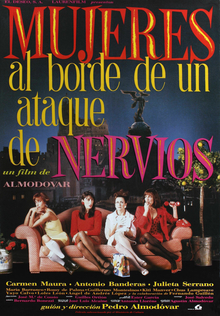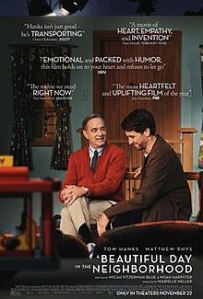
What if I could be the sort of person who goes camping by myself? Silver Lake, Los Angeles. Forty-year old Solène Marchand (Anne Hathaway) is a gallery owner and divorcee who plans a solo camping trip while her ex-husband Daniel (Reid Scott) takes their daughter Izzy (Ella Rubin) and her friends to Coachella. When he is called away on work assignment to Huston, she is left to accompany them. Daniel has arranged for a meet and greet with famous boy band August Moon, despite Izzy now dismissing them as so seventh grade. While waiting in the VIP area, Solène enters what she believes is a bathroom, only to discover that it is August Moon member Hayes Campbell’s (Nicholas Galitzine) trailer. The two are attracted to each other, although Solène, who is sixteen years older than Hayes, is uncomfortable. During August Moon’s performance, Hayes appears to change the show’s setlist, dedicating a song to her. Solène attends her birthday party where is fed up with prospective men her own age. Shortly after the festival, Hayes shows up unannounced at Solène’s gallery, interested in purchasing art. After he buys every piece at the gallery, Solène takes him to a friend’s warehouse studio, where they discuss life and art. After thinking that a restaurant would invite too much attention, the two go to Solène’s house to eat. They share a kiss, but Solène rebuffs him. Hayes leaves his watch behind, then, finding Solène’s phone number on the gallery invoice, texts her to join him in New York at the Essex Hotel. With Izzy away at summer camp, Solène meets him at his hotel where they have sex. Hayes persuades her to travel with him on August Moon’s European tour. Solène wishes to keep their relationship private and does not tell Izzy or anyone else. As the band takes a break at a villa in the south of France, Solène becomes uncomfortable about her age in relation to the other women travelling with them. Bandmate Olly (Raymond Cham Jr) tells her that Hayes’s dedicating a song to her is a tactic they use to impress women and that Hayes has previously pursued relationships with older women including a 35-year old Swedish film star he embarrassed. Solène feels misled and disillusioned and abruptly returns to Los Angeles … Is this your first time getting Mooned? Adapted by director Michael Showalter and co-writer Jennifer Westfeldt from actress Robinne Lee’s bestseller, this sees Hathaway getting into her groove in a seriously romantic drama. The ironic trigger for everything that now happens in her life is her ex’s need to prioritise himself and his business – just as his affair ended their marriage. When she meets a guy 16 years her junior and he reveals his own fear they find a kind of balance. He says: I think that’s my greatest fear in life – that I’m a joke. She counters with: What will people say? Galitzine at first seems like an overwhelmingly gallant white knight and Hathaway positively glows: being adored suits her. Watching her shrug off the mid-life nonsense purveyed by divorced men who insist on talking about themselves all the time is infectious – she is not in crisis. Naturally, once she goes on the road with the band Hayes’ alley cat past comes back to haunt him in a way that hers haunts her decision-making and the wheels come off when she can’t take the heat. The publicity leads her husband to gloat, I’m sure we can all agree that a relationship with a 24-year old pop star would be crazy on so many levels. Yet her daughter argues, Why would you break up with a talented kind feminist? And, for a while, it works, until the Moonfans get their way on social media. Tracy (Annie Mumolo) makes for a great BFF when she comforts Solène, People hate happy women. And that of course is the point. Women are supposed to suffer! Their cheating exes hate them except when they do what they’re told! Their kids don’t let them have a life if they’re not at the centre of everything! Other women hate them! Watching this lovely woman change her opinion of herself and her possibilities in the reflection of how a new guy sees her is wonderful. How the story beats are worked out might not be surprising but to say this is pleasurable and crowd-pleasing is an understatement: it’s a deeply sexy film. The leads are more than persuasive as the well met age-difference match, the scenario a delirium of groupiedom wish fulfilment (She’s with the boy band!!) and it’s all beautifully made with due diligence concerning the social media pile-on which is all too realistic as is the message that love at any age is a trial. A splendid soundtrack peppered with everyone from Fiona Apple to St Vincent as well as the songs from August Moon and Hayes as a singer-songwriter in his own right (with a score by Siddartha Khosla) makes this a total delight. Directed by Michael Showalter. We’re two people with trust issues who need to open up a little. What’s the worst that can happen?






















